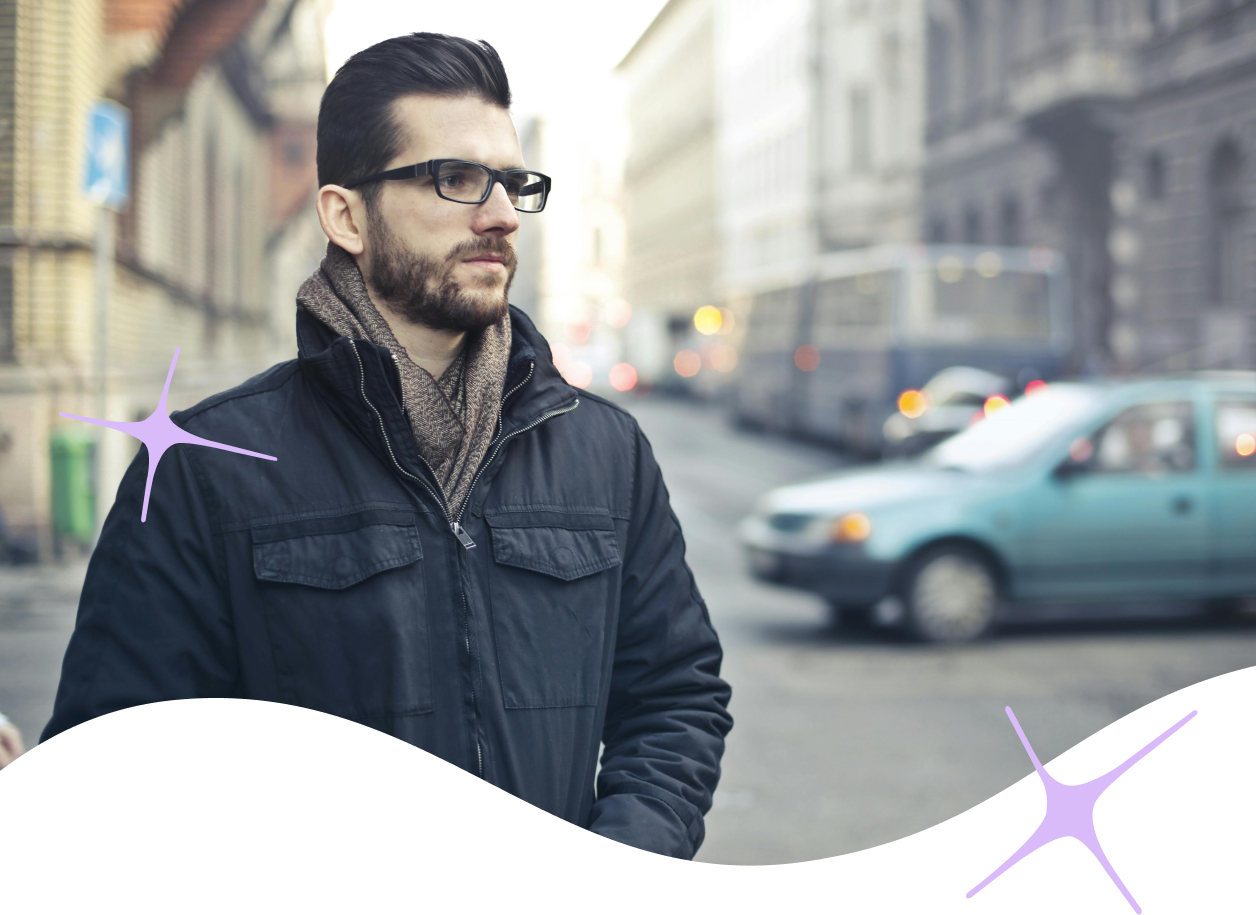You’ve probably heard about the loneliness epidemic, especially the male one, if you’ve ever been online and opened TikTok. And although you might be tempted to laugh it off, the situation is actually real and pretty serious. It’s a problem big enough for Vivek Murphy, the US Surgeon General, to announce the loneliness epidemic in America.

What is loneliness epidemic
Loneliness epidemic is a term that signifies the modern-day issue of widespread social isolation and loneliness among people in our society. All genders and sexes can suffer from the loneliness epidemic, but it seems like the straight male part of the population is the most vulnerable.
What causes loneliness epidemic
You’d think that in the era of the internet, female and male loneliness epidemics would not be a thing. Surprisingly, it might even be contributing to the problem. But that’s not the only reason for the epidemic of loneliness in modern society.
Technological progress means we can stay at home more and have pretty much anything done remotely and delivered to our doorsteps. Today, people work, study, exercise, and entertain themselves from home. This creates a vicious cycle. The less you go out, the fewer people you see, the less likely you are to meet someone that you’ll be able to connect with.
In addition to that, urbanization and relocation to different states mean that people break off ties with their friends, lovers, and families. Part of the population finds itself isolated from society due to illnesses or disabilities. And all of us, undoubtedly, suffered from the loneliness created by the pandemic. Even if you were isolating with your lover or friends and family, your social interactions were aggressively limited, leaving you more vulnerable to the feeling of loneliness.
Combine all these factors, and you’ll see that a significant part of the American population is chronically lonely.
How the loneliness epidemic impacts your health

You might be surprised, but loneliness affects your health, just like stress does. We all get lonely every once in a while, but if it becomes chronic, that’s when you should be concerned.
Mental health impact of loneliness epidemic
Being lonely for a long period of time changes your brain chemistry. Many people report that they find it harder to open up and trust others after they’ve been on their own for some time. This, in turn, creates additional difficulty in building new connections, creating an even stronger distance between the individual and others. In extreme situations, loneliness can cause relationship anxiety and social anxiety disorder that makes socialization pretty much impossible.
Physical health impact of loneliness epidemic
Bear in mind that the physical effects of loneliness are super individual, so you might not experience the symptoms that we’ve listed here, and what you go through can be unique.
Researchers link chronic loneliness with increased risks of a wide range of diseases. From depression and anxiety to obesity, weakened immune system, high blood pressure, heart issues, and even death in extreme cases.
Male loneliness epidemic

Anyone can suffer from loneliness, but particularly the male loneliness epidemic is getting a lot of attention online. If you go on social media, you’ll find endless videos, posts, and articles talking about how severe the male epidemic loneliness is.
There are theories as to why men seem to be the primary victims of it, especially in the context of romantic relationships.
As feminism progresses, more women feel empowered and free from traditionalist ideas of how their lives should be. Women and non-binary people nowadays understand that they don’t have to get married or have kids, but also even have relationships to live happy lives. We see more people choosing to be single and only engage in casual hookups when they’re horny. A lot of it comes from generational trauma of being stuck in a relationship that makes them feel miserable, yet unable to leave. So naturally, more people choose the solo lifestyle these days that enables them to thrive in their careers and hobbies.
At the same time, the majority of the male population in the US is still raised with the idea that women and non-binary people want and need them, so they feel gaslit and let down when, in reality, it turns out their company is not desired and is actually avoided. Thanks to traditional patriarchal values, some men don’t seem to catch up with the idea that they now have to compete not only with other males but with the peaceful life that their potential partners get when they’re single.
There are many wonderful men who are emotionally available and supportive, who take the time to help their partners with chores and take over part of the mental load. But for some men that’s a lesson that is still to be learned. And the sooner they adapt, the sooner the loneliness epidemic will be over for them.
How to navigate loneliness epidemic
Ok, so we are in a loneliness epidemic. How do we treat it?
If you’re feeling lonely or want to prevent the loneliness epidemic creeping up on you, here’s what you can do:
- Find a community that you can join and meet up with on a regular basis. Think of book clubs, open-air yoga sessions, lectures, and art classes. This is a perfect opportunity to leave the house and socialize without feeling awkward. When a group of adults is put in the same room together where they share a hobby or a passion, the conversation starts to flow more naturally. Next thing you know, you’ll find new friends and, possibly, new lovers.
- Have small talks when you’re out and about. And we’re not talking about greeting the store assistant, but something like complimenting strangers’ outfits, asking about people’s pets, etc. A few nice words can change a person’s day around and make you feel better too. And who knows, maybe it will be the start of a meet-cute that will spark a romance?
- Learn to open up to people and share your feelings and emotions. Men seem to suffer the most from the traditionalist social expectations and mental health stigma. A lot of them are raised with the belief that men don’t cry or talk about how they feel. As a result, they grow up to be adults who are emotionally unavailable and struggle with building deep, genuine connections with their partners. It’s not exclusively a male issue though, and many women and non-binary people can feel the same due to how they were raised or the trauma they’ve gone through. So this advice is equally helpful to everyone.
- Reach out to a therapist. There’s absolutely no shame in talking to a professional about how you feel. The Flure team regularly goes to therapists and we are big believers in its benefits. If you’re feeling chronically lonely, a specialist will be able to help you untangle this issue.
- Volunteer. Having a purpose in life is a great weapon against a whole range of negative emotions and a powerful way to solve the issue of loneliness. Doing something that contributes to society will make you feel better and help find new people in your life.
Lastly, as you embark on a journey of healing from the loneliness epidemic, don’t forget to be kind to yourself. Learn to feel compassion and patience, and don’t beat yourself up if the progress you’re making is not as fast as you want it to be.
Flure isn’t just a dating app—it’s your gateway to meaningful connections and unforgettable experiences. Whether you’re seeking new friendships, someone special, or just exploring, Flure makes it easy to find your kind of people. Built on trust, safety, and authenticity, Flure turns your online dating into something truly magical. Ready to make connections that matter? Join Flure today and see where it takes you!








